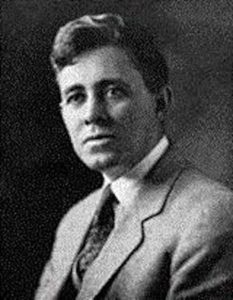
William J. Hale
*William J. Hale was born on this date in 1874. He was a Black educator and administrator. He was from Marion County, Tennessee, the oldest mulatto child in a low-income family of four boys and two girls.
William Jasper Hale worked in various East Tennessee towns during his school days. Hale found substantial employment in Dayton and earned enough money to enroll at biracial Maryville College. After attending Maryville College, he taught in Coulterville and Retro. He became principal of St. Elmo Grammar School in a suburb of Chattanooga. Later, he became the principal of Chattanooga's East First Street Grammar School.
Hale's opportunity for activist notoriety came in 1909 when the General Assembly authorized a Negro state regular school. He led the effort to raise $71,000 in pledges to get the school located in Chattanooga. However, Nashville's black community raised nearly $100,000 and secured the school for Davidson County. Despite the location change, Hale became the state regular school's principal because state Superintendent of Schools R. J. Jones came from Chattanooga and knew William J. Hale. Tennessee Agricultural and Industrial State Normal School opened on June 19, 1912, with 247 students. Hale hand-picked the first faculty members from Atlanta, Fisk, and Howard University graduates.
After visiting other Black institutions where industrial and agricultural training took place, Hale quickly adopted a pre-collegiate curriculum for the school. He secretly created a black history course and called it Industrial Education, "emphasizing Negro problems." Tennessee received federal Morrill Land Grant Funds for State Normal and the University of Tennessee. Still, the white officials sent most of the money to the University of Tennessee.
Although the state officials committed fiscal discrimination against the Black school, Hale increased enrollments and elevated the curriculum to collegiate status by 1922. He sent state officials Christmas turkeys from the school's farm to secure more state funds. He transported state legislators to the campus, where faculty members and students were dined, served, and entertained. During these visits, the students appeared in uniforms, worked on the farm, and did other manual labor, so the whites perceived that "blacks were being educated according to southern expectations."
1927, the National Association of Teachers in Colored Schools elected Hale president. During 1927-28, three new buildings were completed, library holdings improved, faculty fellowships for advanced training were established, and evening courses and extension work were added. By 1935, Hale held dedication ceremonies for six more buildings and began discussing a graduate program.
A soft-spoken mulatto with wavy brown hair streaked with white, a strong chin, and cold gray eyes, Hale looked like a "white" man. He often endured insults against blacks by state officials before they realized that the pale-skinned Hale was Black. Hale married Hattie Hodgkins, who was a graduate of Fisk University. Their three children graduated from A & I College with distinction: William Jasper, Jr., Gwendolyn Claire, and Edward Harned.
He served on the board of Citizens Bank, and in 1929, he presided over the State Interracial Commission. In 1930, Hale became the first Tennessean to receive the Harmon Foundation's Gold Award for outstanding educational achievement. He chaired the Community Chest Drive for blacks (1931). He also received honorary Doctor of Law degrees from Wilberforce University and Howard University (1936 and 1939). Dr. Hale became the Negro state director for U. S. Savings Stamps and Bonds during the early part of World War Two and raised over forty thousand dollars.
When Tennessee A & I State College celebrated its twenty-fifth anniversary, it was valued at $3,000,000. Hale successfully gained accreditation for the school in 1933. His graduates earned advanced degrees from America's prestigious colleges and universities, including Columbia, Ohio State, Cornell, and Iowa State. He retired in 1943 after struggling for thirty-one years to build and expand a creditable learning institution for African Americans. William J. Hale died in New York on October 5, 1944.